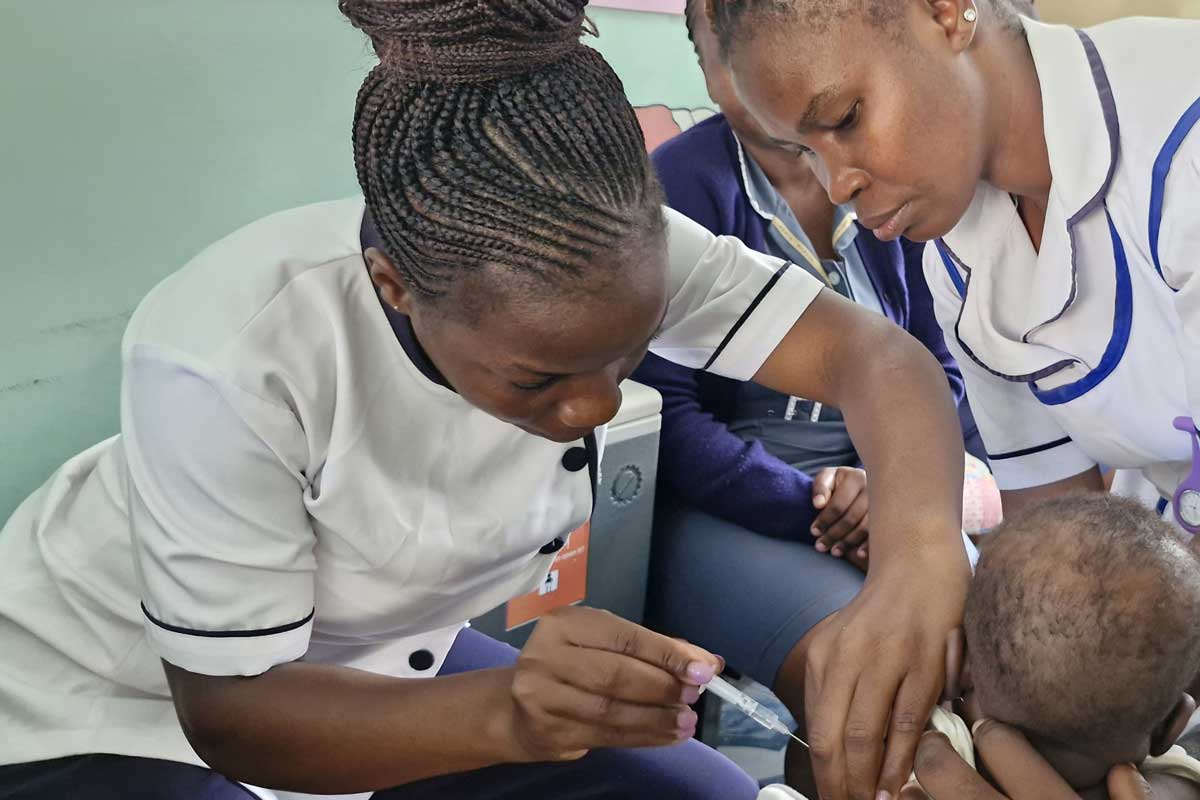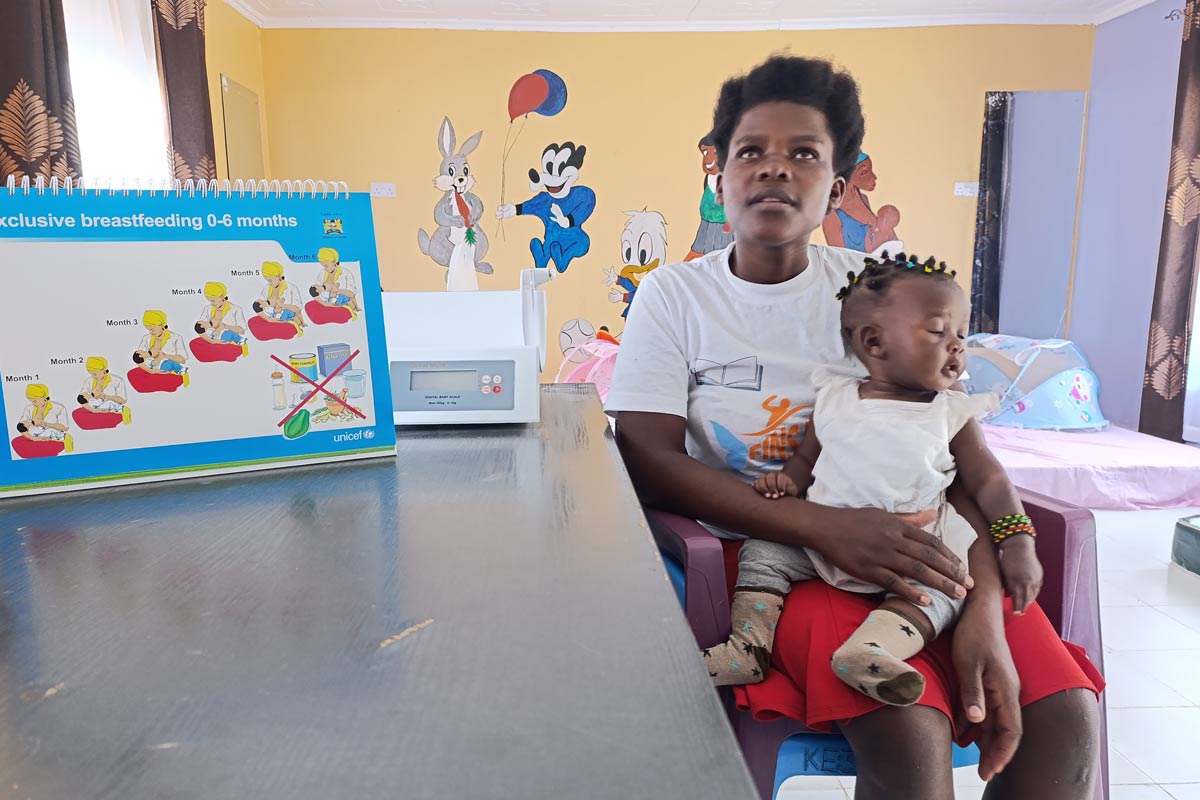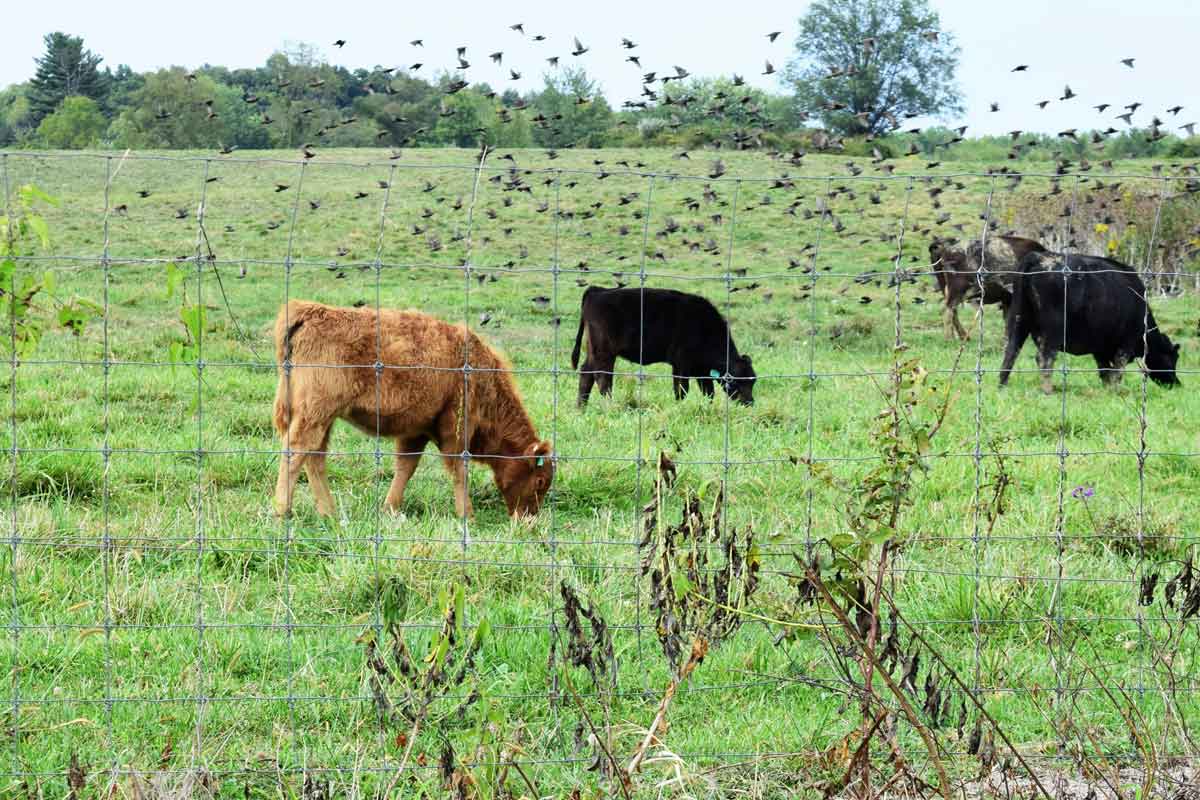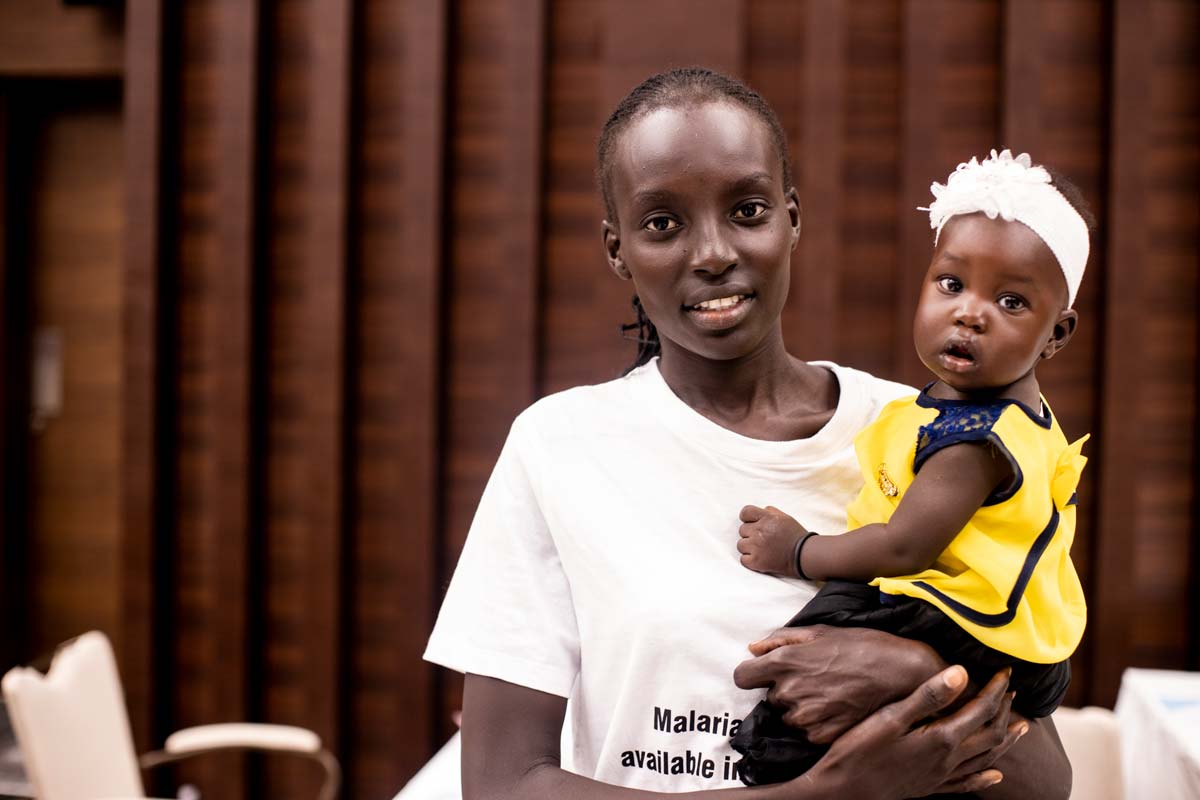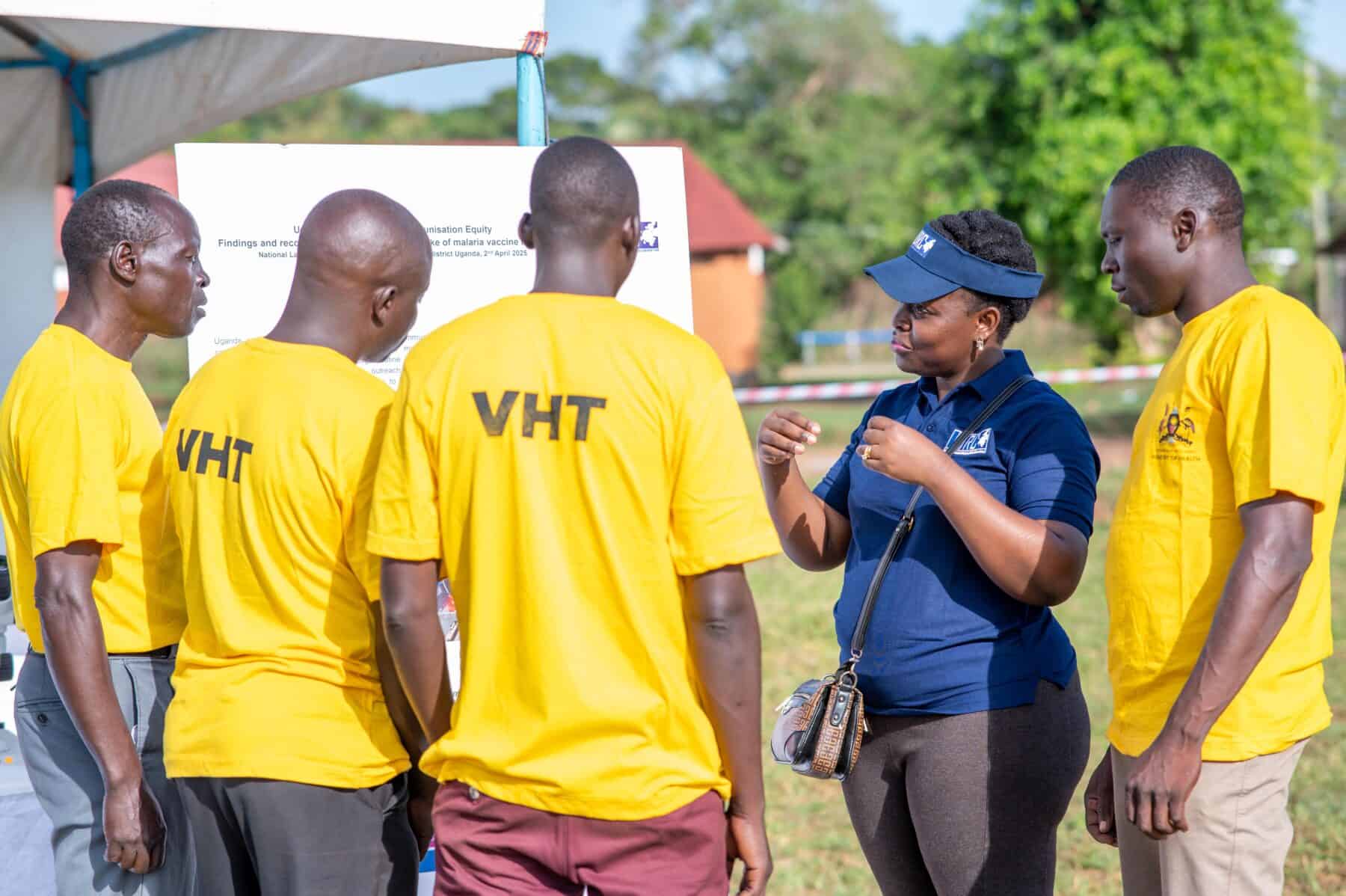Text messages and small cash sums help women in this Kenyan county navigate new motherhood
A Kakamega maternal and child health care programme disburses small payments to keep mothers and babies in touch with the health care system through their most vulnerable months.
- 13 June 2024
- 7 min read
- by Angeline Anyango
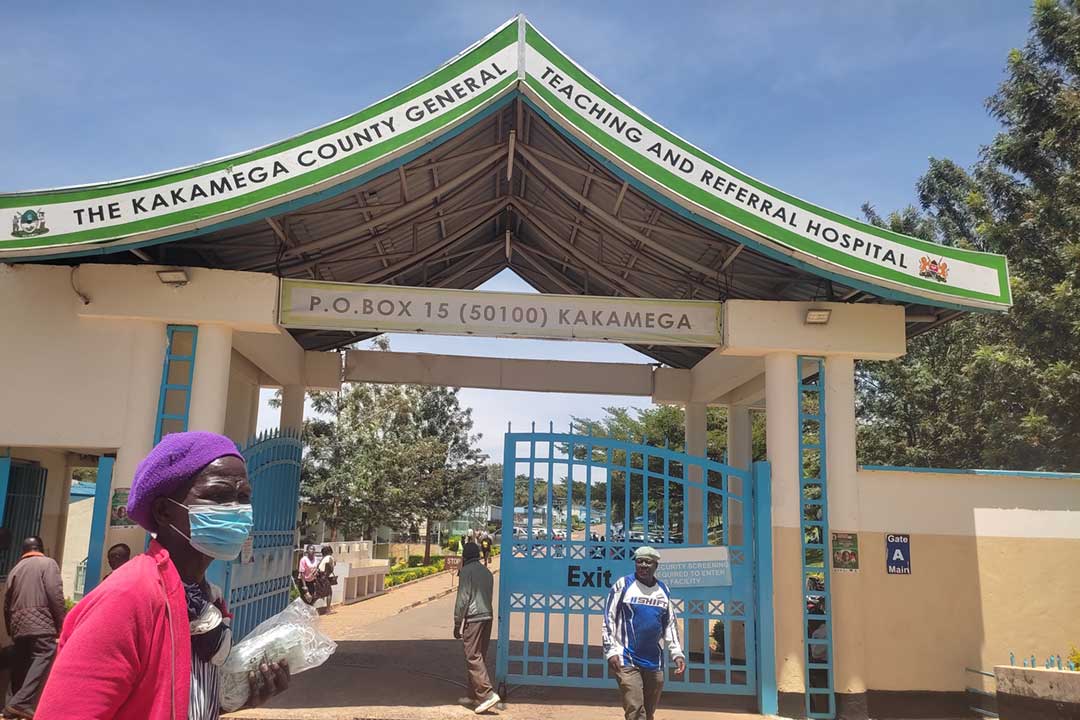
On a chilly Thursday morning, Veronica Adhiambo makes her way through the Kakamega County General Teaching and Referral Hospital (KCGTRH) to the immunisation clinic.
She carries her young baby, who will be receiving his second-ever set of vaccinations. There's a long queue, but this does not worry her. Instead, Adhiambo finds a space on one of the benches, and begins to breastfeed her baby.
Once the baby is full and relaxed, she gets her smartphone from a purse hanging on her shoulders and starts scrolling through messages. One message, received from the county health department, reads:
"Hi mum, it is almost the sixth week of immunization time for your baby. At the visit, your baby should receive two oral vaccines (polio and rotavirus). The baby will also receive two injections, DPT/pentavalent and Pneumonia vaccine"
"Initially, I looked forward to consulting with other women who had given birth ahead of me, but I do not need to any more. The SMS line also allows me to send texts inquiring about any health issue affecting me or my baby, free of charge."
– Veronica Adhiambo, new mother
The SMS goes on to explain that the baby might develop a mild fever and be irritable for 24 hours after the vaccine – and that this should cause the mother no concern. Do not administer drugs to the child if it it displays these symptoms, the message cautions Adhiambo, since certain drugs could interfere with the vaccine effectiveness. She is advised to instead cool off the baby with a clean towel dipped in tepid water.
"This information is very critical since he is my first child; at least, I know what to expect and how to handle the situation once I am done with vaccination," says Adhiambo, who explains this is not the first message she has received since registering for the Imarisha Afya ya Mama na Mtoto Program, a name that loosely translates to "better care for mother and child". Here in Kakamega County, the programme is more commonly referred to as Barasa Care.
SMS hand-holding
Adhiambo gave birth at KCGRTH on January 30. On January 31, a nurse at the facility introduced her to Barasa Care. All she needed to register was her national identification card and her personal phone number. Shortly after registration she received a message welcoming her to the program.
Later that evening, she received a message inquiring whether her son had received his first vaccine and how it had been administered. Since then, Adhiambo has been receiving a steady stream of messages aimed at educating her on how to take care of herself and the baby. For Adhiambo, the messages have become a source of comfort, and an authoritative voice of guidance.
"Initially, I looked forward to consulting with other women who had given birth ahead of me, but I do not need to any more. The SMS line also allows me to send texts inquiring about any health issue affecting me or my baby, free of charge," she says.
Small sums for little ones
According to 2014's Kenya Demographic Health Survey, 64 out of 1,000 children born in Kakamega county died before they reached five years of age. Nationwide, 52 in 1,000 children died before their fifth birthdays. The survey further revealed that the county's maternal mortality rate was 800 out of 100,000.
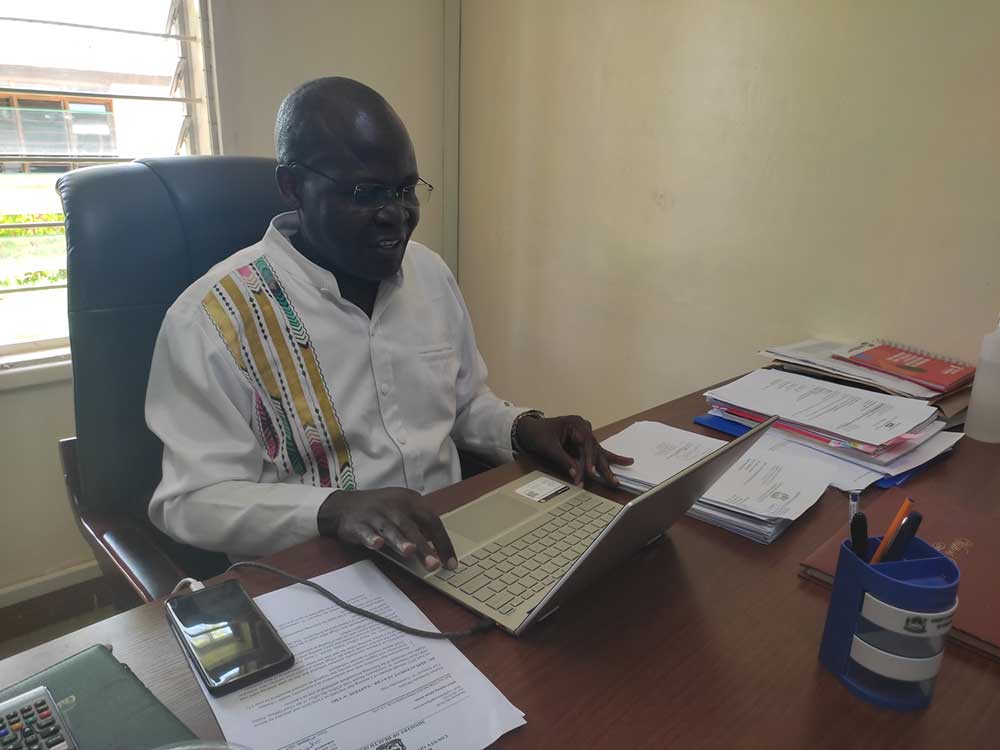
Credit: Angeline Anyango.
"Although this was largely contributed by the high poverty rate, which stood at 49.6% with more than 33,000 mothers living on less than a dollar per day, then county health experts also realised that there was very low knowledge on the best practices around antenatal care, skilled delivery and postnatal care," said Kakamega County Chief officer for Public Health, George Mukodo.
Have you read?
According to Mukodo, the Barasa Care programme, which was inaugurated in 2013, but kicked into high gear after the following year's KDHS report came out, was designed as a social health-oriented protection programme that provided a conditional cash transfer with the goal of improving maternal and child health outcomes. Small sums of money would go a long way, it was hoped, to boosting uptake of antenatal care, skilled delivery assistance, improving infant and toddler's nutrition, and attendance of maternal and child health and nutrition services. (At the time of reporting, Adhiambo had not yet received her first cash transfer due to financial delays at national level. This, notably, did not stop her from feeling that the programme, which isn't limited to payouts, was benefitting her and her baby)
Barasa Care has been designed to help a new mother through just one child's infancy. Over an 18-month period, the woman is taken through extensive maternal health training in the hope that she will continue to benefit from that education if she decides to conceive again.
Samuel Soita, the health records officer at KCGTRH, says that at the hospital, Barasa Care clients are, in the main, poor and vulnerable pregnant mothers, or mothers with their newborn babies.
To qualify, beneficiaries must come from Kakamega county, have a national identity card, be expecting a baby, or have a baby below 18 months of age. But to benefit, families also need to be demonstrably needy.
"Priority is given to underage, disabled, HIV positive and malnourished mothers," says Soita.
Since the programme's inception in 2013, more than 90,000 women have been enrolled, with 40,000 benefitting following a home visit to assess the family's financial need.
When a mother attends her first antenatal care (ANC) visit just after registration, she gets 2,000 shillings (about US$ 15). On the fourth visit she also receives a similar amount of money – a stipulation geared at achieving the World Health Organization's target of four antenatal care visits before a pregnant woman's due date.
When the woman delivers at a health facility, she receives her third disbursement. She receives the remaining amount during the routine postnatal clinics – with the last instalment given when the baby receives the immunisation he or she is due at 18 months.
"By the time the baby reaches 18 months, the mother will have received 12,000 shillings (US$ 90) courtesy of the programme," says the records officer.
The programme is funded and implemented by the county government of Kakamega while receiving technical assistance from UNICEF.
"Doing good"
Mukodo notes that the cash programme currently runs in 39 out of 60 wards in the expansive county. "This year, we have budgeted for 80 million shillings [about US$ 600,000] to run the maternal child healthcare programme," he says.
He says the programme is making enough of a difference to justify the cost. The county has been able to increase skilled deliveries, reduce infant and maternal mortality, improve health seeking behaviour, increase immunisation uptake and improve family planning uptake, he explains.
"Priority is given to underage, disabled, HIV positive and malnourished mothers."
– Samuel Soita, health records officer, KCGTRH
According to the 2022 KDHS survey, Kakamega County vaccine uptake had improved to 90.7%, up 73.1% in 2014. The statistics also indicated that hospital deliveries had improved to 90% that year, up from 47% in 2014.
But the SMSes and cash payments don't carry Kakamega's maternal and child health on their own. "We work with 4,250 community health promoters who also help in doing follow-ups of vaccine and ANC visits defaulters among those not registered in the programme. This has helped to ensure that no child misses out of the early childhood immunisation," Mukodo says.
Just like other initiatives, the chief officer says the programme has had its fair share of challenges, which they have been trying to manage as they come. He says some of the mothers who do not own mobile phones nominate different people to receive cash on their behalf, and end up not getting the money.
He also says delayed disbursement of funds from the national treasury at times forces them to offer health education while the cash programme is put on hold until they receive the funds. Nevertheless, Mukodo says the programme has been doing well. Barasa Care is set to expand to the remaining 21 wards so the entire county is covered.
